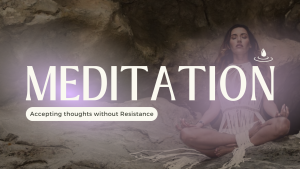Embracing Self-Assessment and Acknowledgment for Personal Growth
In the journey toward personal growth and self-mastery, understanding and fulfilling our emotional needs is paramount. This process begins with self-assessment and acknowledgment, crucial steps that allow us to navigate our inner landscape and foster a deeper connection with ourselves and others. This article delves into the essence of self-assessment, the spectrum of our emotional needs, and how acknowledging and addressing these needs can lead to a more balanced and fulfilling life.
Understanding Our Emotional Needs
Our emotional well-being is influenced by a diverse range of needs, including affection, acceptance, validation, autonomy, security, trust, empathy, prioritization, connection, and space. These needs are foundational to our relationships and intrinsic happiness. They act as the emotional oxygen that fuels our sense of belonging, self-esteem, and contentment in life. Recognizing and striving to meet these needs in ourselves and in our interactions with others is a delicate dance that requires awareness, honesty, and vulnerability.
The Process of Self-Assessment
Self-assessment involves taking a metaphorical inventory of our emotional bank account to identify which needs are fully satisfied and which are in deficit. It’s about asking ourselves hard questions and being prepared to listen to the sometimes uncomfortable answers. This introspective process is not about self-judgment but about self-discovery. It requires us to hold ourselves accountable for our emotional well-being, acknowledging that while we are interdependent beings who thrive on connection, the primary responsibility for meeting our needs rests within us.
The Impact of Neglecting Self-Assessment
Neglecting to assess and acknowledge our emotional needs can lead us into a trap of living reactively rather than proactively. We might find ourselves constantly trying to fill voids through external validation or, conversely, neglecting our needs to the point of emotional bankruptcy. Such patterns can lead to relationships where we give too much of ourselves away or expect others to solve our emotional dilemmas, neither of which is sustainable or fulfilling in the long run.
Conducting an Emotional Needs Audit
An Emotional Needs Audit is a powerful tool for clarity. It involves listing our core emotional needs and honestly evaluating how well each is being met. This practice isn’t a one-time activity but an ongoing process of reflection and adjustment. Approaching this audit with empathy and patience towards oneself can reveal previously unacknowledged areas of need, providing a roadmap for personal development and growth.
Step 1: Identify Your Core Emotional Needs
Begin by listing out the fundamental emotional needs that every human being requires for psychological well-being. These needs vary from person to person but generally include the ones mentioned above. Understanding these needs is crucial as they form the basis of your emotional health and interpersonal relationships.
Step 2: Honest Evaluation
For each emotional need, conduct a candid assessment of how well it is being fulfilled. Ask yourself questions like, “Do I feel accepted and understood by those around me?” or “Do I have autonomy and control over my life decisions?” Rate each need on a scale from 1 to 10, where 1 indicates a significant lack and 10 signifies complete satisfaction. This process requires honesty and introspection, as accurately identifying the gaps in your emotional well-being is essential for meaningful growth.
Step 3: Ongoing Reflection and Adjustment
Recognize that an Emotional Needs Audit is not a one-off task but a continuous journey of self-discovery and self-improvement. Life circumstances and relationships evolve, and so will your emotional needs and how they are met. Regularly revisiting this audit can help you stay aligned with your inner self and make necessary adjustments in your life and relationships.
Step 4: Approach with Empathy and Patience
It’s important to approach this audit with a sense of empathy and patience towards yourself. Uncovering areas where your needs are not fully met can be confronting and uncomfortable. However, acknowledging these aspects of your life without judgment is the first step towards addressing them. Be kind to yourself throughout this process, understanding that recognizing unmet needs is a sign of strength and the first step towards fulfilling them.
Step 5: Creating a Roadmap for Personal Development
The insights gained from an Emotional Needs Audit provide a clear roadmap for your personal development journey. They highlight areas where you may need to seek support, set healthier boundaries, or make changes in your lifestyle or relationships. This roadmap is uniquely yours and serves as a guide to living a more balanced, fulfilled life.
Moving from Recognition to Action
Identifying unmet needs is only the first step; the real work lies in taking action to address them. This might involve setting boundaries, cultivating self-care practices, seeking supportive relationships, or engaging in activities that fulfill us. It’s also about finding the right balance between self-reliance in meeting our needs and the healthy interdependence that comes from engaging authentically with others.
Conclusion
Self-assessment and acknowledgment are not mere exercises in introspection but essential practices for anyone seeking to live a more authentic and fulfilling life. By understanding and addressing our emotional needs, we open the door to deeper self-awareness, more meaningful relationships, and an enhanced sense of well-being. The path toward personal growth and self-mastery is a journey inward, one that begins with the courageous step of looking in the mirror and asking ourselves what we truly need to thrive.
Free mini-Course
Latest YouTube Video
Get my newsletter
Blog

Decoding Mixed Signals in Dating: What She Really Means
Decoding Mixed Signals in Dating: What She Really Means In the complex world of dating and relationships, mixed signals can often leave us feeling confused and frustrated. As a relationship coach, I’ve seen countless individuals struggle to interpret these contradictory messages. Let’s dive into the art of decoding mixed signals

5 Tell-Tale Signs She’s Not Into You (And How to Grow From It)
5 Tell-Tale Signs She’s Not Into You (And How to Grow From It) In the complex world of modern dating, it’s crucial to recognize when someone isn’t as invested in the relationship as you are. Understanding these signs can save you time, emotional energy, and help you focus on building

Effective Stress Management in Relationships
Effective Stress Management in Relationships Maintaining a healthy and supportive relationship requires understanding how to manage stress effectively. Let’s dive into some practical techniques as shares to us on on how to foster a stress-resilient relationship. Example of Supportive Partner Behavior Calm Body Language What we call, co-regulation, Maintaining a
Embracing Personal Growth: From Only Fans to Coach
Embracing Personal Growth: From Only Fans to Coach In today’s world of rapid change and evolving social norms, many of us find ourselves navigating complex personal journeys. As a former bikini model turned coach, I’ve experienced firsthand the challenges and rewards of personal transformation. This post explores the path from

Embracing Thoughts: The Path to Mindful Meditation
Embracing Thoughts: The Path to Mindful Meditation Meditation, a practice as ancient as time, holds the key to unlocking inner peace and mental clarity. At the heart of effective meditation lies the principle of accepting thoughts without resistance. This simple yet profound approach can transform not only your meditation practice

Understanding and Overcoming People-Pleaser Demon
The Disconnect: Intentions vs. Perceptions Many think being overly kind and selfless will make others appreciate them, but it often backfires. People pleasers may seem passive, inauthentic or manipulative. Going overboard fosters clingy codependent relationships that diminish self-worth and set an unhealthy precedent. Finding Balance: Healthy Relationships It’s crucial to


